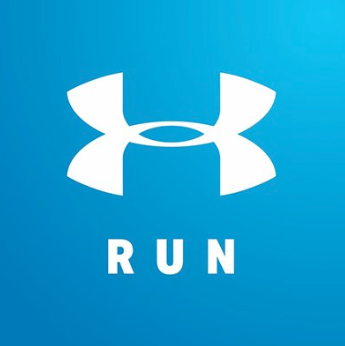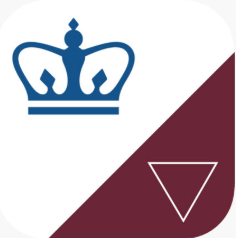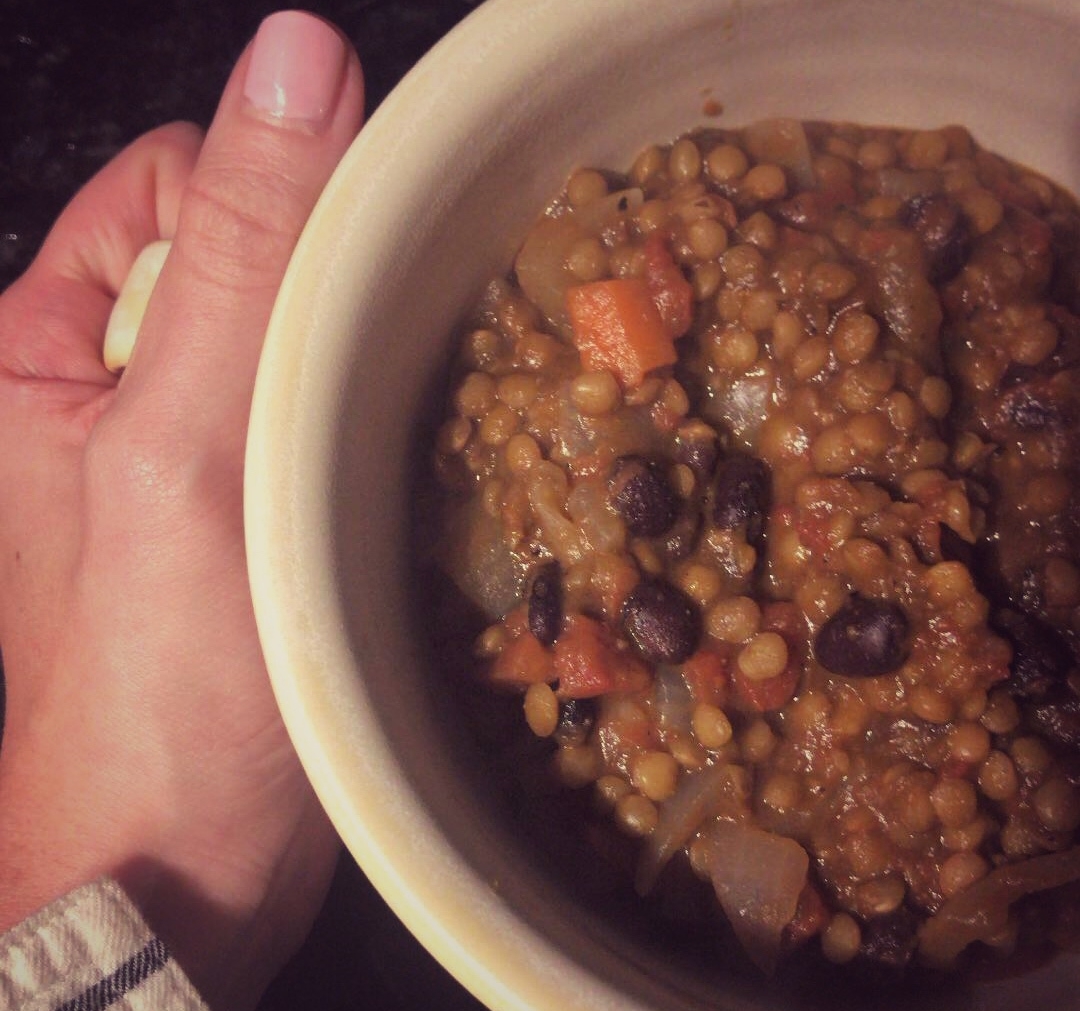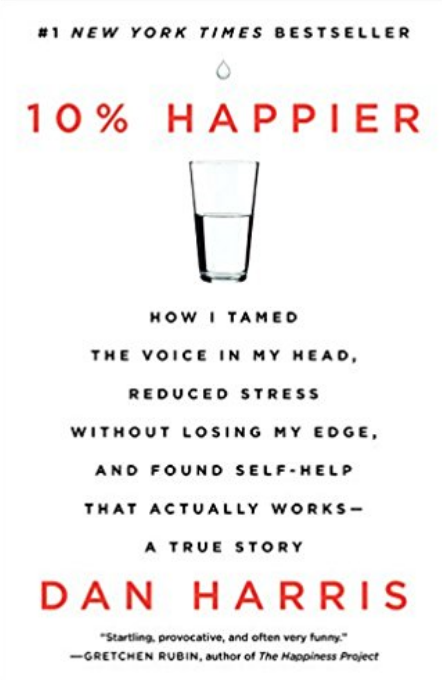My Favorite Fitness + Wellness Apps
I know we all bemoan the fact that we're too attached to our phones, and in a lot of ways, it is truly awful. A few years ago, I dropped my iPhone in the toilet and the old bag-of-rice trick got me nowhere.
I felt completely cut off from the world for 12-15 hours, and not in the good vacation-y way. I had to call my parents that night and let them know I'd be somewhat out of touch. Since I had a Mac, I could use Facetime, though teaching them how to use it without being able to talk them through it was a challenge. I was anxious about going to acupuncture for the first time the next day without the aid of GPS.
And I'm ashamed to say it, but...I couldn't meditate without my phone.
I realize that seems counterintuitive but meditation apps are what got me sticking to meditation in the first place. All this is a roundabout way of telling you that your phone can be an awesome tool for staying fit, healthy, and well.
Here are my favorite apps to keep me running at full capacity (literally and metaphorically).
Fitness: MapMyRun
When I first started running, I used Runkeeper. I outgrew it when I started running races because I found that the training plans were stagnant. They remained the same no matter what I did (or didn't do) each week. To me, the benefit of MapMyRun is that the training plans are adaptive; if you miss a run or if you start to get faster, the plan accounts for that and adapts the next week's workouts.
If you have a wearable fitness tracker (I have a Garmin watch), it seamlessly syncs with your tracker to monitor your workouts, and it doesn't just include running. But even without a wearable, you can use the GPS on your phone when running to track your runs (but beware phone GPSs are notoriously off when it comes to pace and you are probably slower than your phone says...which is a real bummer). And if you're competitive (like I am), you can sign up for challenges and be entered to win Under Armour gear and other prizes for completing certain numbers of workouts per week, running a certain number of kilometers, etc.
Cost: The basic version is free and includes a LOT of the regular features. The MVP version, which includes the training plans I mentioned, is $5.99 per month or $29.99 per year. Look out for occasional deals as well.
Fitness: Sweat
For eight years I worked my ass off at the bougie gym across the street. EIGHT years of Les Mills classes, my friends. I still miss Body Combat and (non-Les Mills) spin and boot camp, but I have to admit, many of the other classes got old (I'm looking at you, Body Pump). There are only so many ways you can choreograph bicep curls.
So when I moved to a building with its own small gym, I figured I'd cut costs and cut my gym membership. But I had to find a new routine. Enter: Kayla Itsines's Sweat. I somehow came across Kayla and Sweat on Instagram looking at some amazing fitness transformations. But they weren't typical "fat to skinny" infomercial-type makeovers; these women all looked STRONG. So I did a seven-day trial and was sold.
The Sweat app includes two sets of workouts by Kayla, one which relies mostly on body weight exercises and one which incorporates weights. Both are each made up of workouts that have two circuits of four exercises each, totaling a 28-minute workout for a high-impact but quick burst of exercise. The app also includes two programs by Kelsey Wells, another fitness Insta-star. One is a post-pregnancy program, and one is called PWR and incorporates more of the gym equipment and pyramids, supersets, and burnout intervals. There is also a yoga program which, along with the pregnancy program, I haven't tried.
I am currently on Week 15 of PWR and LOVING IT. I've also done both of Kayla's programs and felt great doing both. This is also an ideal app if you are someone who travels a lot and want some good workouts you can do in your hotel or hotel gym. I don't use them much, but it also has a number of healthy recipes by Kayla (who also is an endo sister!).
Cost: The app is $19.99 per month or $54.99 for three months -- significantly less than a gym membership or a personal trainer.
Wellness: Headspace
I've already written a bit about my meditation journey, so if you want to hear about why I think meditation is great, click here! I took the plunge at the beginning of the year and sprung for Headspace because of their New Year's deal and it has been worth every penny.
Headspace categorizes guided meditation tracks based on what you want or need. There are single tracks, but what I find most useful are the "packs," which include sets of meditations on certain topics that help you build different skills and strategies. So far I've completed the basic foundational packs as well as packs on managing anxiety, stress, sleep, pain management, prioritization, and productivity. With my boyfriend having just moved in and a new job about to begin, I am currently working my way through the "change" pack.
Since I've started this year, I've meditated for 37 hours (!!!) and have completed 198 sessions.
Cost: Headspace is $95.88 for the year ($7.99/month) or $12.99 monthly. If you wait for the beginning of the year, I believe I paid somewhere around $55 for the whole year with the new year deal.
Wellness: Insight Timer
If the Headspace price is too steep for you, and you're not sure you're into consistently sticking with meditation (yet), Insight Timer is a great free app to start with. I used this guy for a long time before I switched to Headspace and I still keep it on my phone.
In addition to a timer for silent meditations, Insight also comes with a zillion guided tracks, which you can also search by topic (not to mention a healthy selection of soundtracks for falling asleep). The only downside to this app is that it isn't progressive and the tracks are hit-or-miss. So eventually I had found a few I liked for starting off the day and realized that I basically had them memorized after a while and wasn't listening or focusing at all. If you're going to use this one, I recommend looking for new tracks regularly so you don't get stuck in a rut like I did.
Cost: Free! There is an upgraded version for $4.99/month or $35.99/year.
Wellness: Think Dirty
I recently wrote about making the arduous switch from the beauty and bath products I grew up with to all-natural ones, and someone commented on Instagram to check out the Think Dirty app. THANK YOU, INSTAFRIEND.
This app is so helpful. You can enter the name of a brand or product or simply scan the barcode. If the product is in the Think Dirty system, it rates it based on potentially harmful ingredients and breaks down what the problem is with each ingredient. Green products (0-3) are clean and safe, yellow products (4-7) have moderately negative long-term effects, and red products (8-10) have potentially serious problematic health effects. Byeeeeee, sulfates.
Aside from potential cancer, I am looking to remove any products that may disrupt or aggravate any hormonal imbalances I have in order to better manage my endometriosis. Because I know from WomanCode which chemicals do what to my body, I can easily check each product on Think Dirty and find out if it has the chemicals I want to avoid. And then Think Dirty allows me to store and bookmark products I like.
Cost: FREE!
Health: Clue
If you ever looked into downloading a period tracking app, then I'm sure you've heard of Clue. It's the most popular one out there, probably because it is the first one developed by a woman. Go figure.
With great little logos and options to fill out anything you want to track about your period, whether it is symptoms or fertility, this app is so nifty for learning about your body and identifying patterns. It gets smarter each time you fill out information and lets you know when PMS is on the horizon. LOL, as if I didn't already know.
Bonus! The website is FULL of information about reproductive health and is a great resource. They even have info on endo!
Cost: FREE!
Health: Phendo
This one is specifically for my endo sisters out there. Phendo is part of Columbia University's Citizen Endo research project. As you know, there is not a lot of research out there on endometriosis, so this app is less for me and more for the greater good.
Phendo is specifically geared toward identifying symptoms, issues, and management methods involved in the lived experience of endo. You can track moments (i.e., left ovary, cramping, severe) and each day. Each day is rated and you're asked what was hard to do, what helped, what exercise affected you, what foods affected you, what treatment modalities helped, etc.
Not only is it a great way to track your symptoms for your doctors, it makes me feel really good knowing that my data is going toward researchers who may someday make real changes in our experiences of endo. Sometimes I wonder if they read the notes section and if they laughed at the times I wrote things like, "cried a lot today, not sure if it was hormones or Donald Trump."
Cost: FREE!
Health: MyFlo
Last but not least! The app companion to my latest obsession, Alisa Vitti and FLOLiving. The MyFlo app stands apart from Clue and Phendo in that it tracks your cycle in a much more granular way -- down to each of the four phases -- menstrual, follicular, ovulatory, and luteal.
It also adapts as you input data and tells you where you are each day. Depending on which phase you're in, it gives you evidence-based information on what symptoms you can expect, what they mean, and how you can manage them with food and lifestyle choices.
It also helps you figure out where you're head is at! Have you ever gotten plenty of sleep, plenty of food, and felt fine but you just couldn't focus or get motivated to get work done? Bitch, you were probably in your luteal phase! This app tells you where to focus your mental energy. It's brilliant and I love it.
Cost: $1.99 and WORTH EVERY. DAMN. PENNY. AND THEN SOME.
What are your favorite health and wellness apps?




















